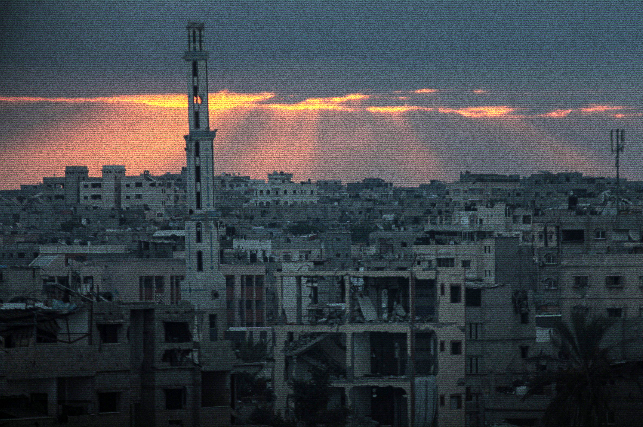Palestinian culture appropriated by Israel, from food to traditional garb - Ambassador
Falafel, Hummus, and Keffiyeh: Palestinian symbols claimed by Israel

SHAH ALAM - Israel has consistently appropriated elements of Palestinian culture, including traditional foods, attire, and customs, falsely claiming them as their own.
Palestinian Ambassador to Malaysia Walid Abu Ali, highlighted that Israel lacked authentic traditional dishes, often borrowing from Palestinian cuisine instead.
“The Israelis have tried to steal everything. They even tried to claim falafel and hummus as their own, but these are traditionally ours,” he said during The Palestinian Diaries: A Day of Culture, Stories & Solidarity, organised by Sinar Daily at Kumpulan Karangkraf on Tuesday.
He also said that Israel has appropriated traditional Palestinian dress, particularly the attire worn by Palestinian women.
"Even on Israel's national airline, their stewards wear it and claim it as their own,” he added.
During a panel discussion, when asked about the significance of the keffiyeh he was wearing, Walid stressed its cultural and symbolic importance in the context of Palestinian resistance and heritage.
He pointed out that the keffiyeh, a traditional Palestinian garment, is widely recognised and worn by both men and women, including his wife and daughter.
“This piece of cloth is deeply symbolic for Palestinians. Yasser Arafat himself always wore it, even during his final moments in Paris. Today, it is preserved in the Yasser Arafat Museum in Ramallah,” he added.
Walid also stressed that Israelis dislike the sight of the keffiyeh due to its powerful symbolism, yet they continue to appropriate everything that is distinctly Palestinian.
He further described this cultural connection by mentioning the 5,500-year-old olive tree in his home village of Al Walaja, which he characterised as part of his family's heritage.
“This land is ours, and we are deeply connected to it. We remain firmly rooted in our Palestinian soil, and we will stay there, whether they accept it or not,” he said.















